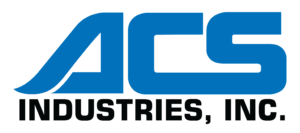Automation and the Future of Manufacturing
The key to maintaining a leadership position in any manufacturing industry ultimately lies is dedicated, and continuous efforts to control costs across all aspects of the business. Every department and business activity from HR to procurement, to production and shipping, is an opportunity for efficiency-created savings and these savings can be put to work ensuring sustained technological leadership with R&D.
There are many ways a manufacturer can improve its efficiency on the production floor and therefore decrease costs. Once processes, inputs, and workflows are fully optimized manufacturers will likely look toward automation in order to achieve greater levels of efficiency.
Increased automation utilization can have significant positive impact on finished product quality, repeatability, and precision while also improving sustainability, safety, product focus, and even job creation metrics.
Sustainability: Automation can have a positive impact on sustainability for several reasons. Optimized production schedules ultimately use less energy and resources to complete a project, making them inherently more sustainable but the environmental benefits extend beyond these savings. Automated machines can utilize energy in more efficient manners than machines that are turned on and off by an operator. Resources can also be preserved in maintenance as automated machines often present the benefit of predictive maintenance programs. IoT automated machines can also allow users to monitor energy usage in real time, preventing unforeseen energy usage spikes. Finally, automated processes tend to have less waste than their human handled counterparts, resulting in additional sustainability (Carrol, 2024).
Safety: Automation allows us to take the human hands out of the most dangerous parts of our processes. Automation can reduce manufacturing injuries by up to 72% when implemented correctly with sufficient safety barriers, properly trained employees, and properly maintained equipment (Marsh, 2023).
Product Focus: By automating our production, we can focus on the product- making sure it fits your use perfectly. More automation means more workers are freed up from completing repetitive tasks and can focus on delivering the best possible product (Stevick, 2023).
Job Creation: The common fear is that automation will take away manufacturing jobs but in practice it has been found to actually create job opportunities. A report from The Manufacturing Institute, Navigating the Fourth Industrial Revolution to the Bottom Line, explained that automation implementation has been seen to create “an increased need for talent to manage in a more automated, flexible production environment and new jobs for workers who can engineer robotics and their operating systems, to name a few opportunities. Rather than taking jobs away from workers, the report’s survey finds that most manufacturers see automation as reinforcing the need for distinctly human abilities” (Harris, 2024). The positive effect of automation on job creation can be witnessed on the national level as well: “there’s a lot of data to show that countries that adopt more automation actually end up having more jobs available for their people and higher paying jobs,” says Saman Farid, CEO of Formic Technologies (Nikolopoulos, 2024). ACS has seen this phenomenon first hand, as several of our employees have moved from operating a single production machine to learning how to program and run automated lines.
Machine Vision Systems: Once automation has been implemented, the most dangerous manufacturing tasks have been taken out of human hands, and new efficiencies have been achieved, manufacturers can continue to improve their operations by implementing machine vision systems. Machine vision systems monitor production and make real-time adjustments to the machine parameters to ensure the highest quality output and the most efficient production runs leading to extremely precise material. (Medical Plastics News, 2023).
ACS Industries has hundreds of automation cells installed and operating in our production facilities. Many of our automotive products are manufactured in a fully automated manner, with one employee managing the workflow flow of several cells for optimized output. Several of our processes, including our patented Variable Expanded Metal utilize machine vision systems to ensure flawless results. Give us a call today to put ACS’s efficiency boosting and cost saving automation to work producing the perfect components for your application.


